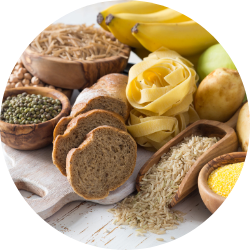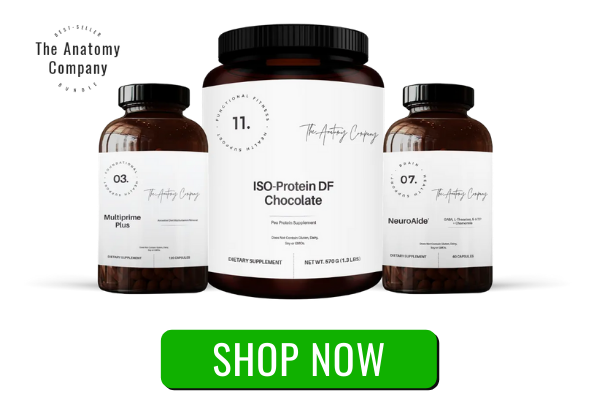Can You Get Ripped if You’re a Vegetarian or Vegan?
There’s a common misconception that you have to eat tons of animal-based protein if you want to become truly ripped.
After all, many of the world’s most famous bodybuilders talk on and on about how much meat they eat every day, including the kinds they consume and how they prepare it.
That sounds tasty to many of us... But what if you’re a vegetarian or vegan? Can you still get ripped?
Absolutely! The nutrition required to lay down lean, rippling muscle can be found in numerous plant-based sources, which in turn takes care of your cholesterol levels and keeps your consumption of bad fats in check.
If you’re following a plant-based way of life, the dietary guidelines you’ll need to follow to build muscle efficiently and keep it on is a little different than if you eat meat.
Let’s break down this topic in more detail:
Your Micronutrient Requirements Remain the Same

For starters, the core micronutrient requirements to get a ripped body aren’t any different depending on whether you eat meat, or are vegetarian or vegan.
Either way, if you're looking to lay down lean, stacked muscle, you'll always need the same basic nutrients in your diet.
Be sure to always get plenty of these two key elements in order to fuel the fire of your gains:

PROTEIN
You need plenty of protein so your body can create new muscle cells and fibers. Muscle growth is driven by muscle tears, which are formed when you work out. New muscle then fills in the gaps and your muscles get bigger.

CARBOHYDRATES
You'll also need plenty of carbohydrates, since they are your body's primary source of energy. The carbs allow you to lift & perform other strenuous exercises without consuming protein for fuel.
Therefore, the big difference between “regular” and vegan or vegetarian diets revolves around where you get the protein and carbohydrate content you need to bulk up.
Where to Get Protein in a Vegan/Vegetarian Diet

Meat is not the only source of functional protein for the purpose of muscle building. Vegetarians and vegans can get plenty of protein from plant-based sources such as:
- Beans
- Quinoa
- Practically all types of Legumes
- Broccoli
- Oat Milk & Soy Milk (such as in a workout shake)
- Tofu
- Flax Seeds
-
and more
Of course, vegetarians might have an easier time since they can add dairy to their diet and get some protein from those foods, like milk or cheese.
The key to muscle building in vegetarian or vegan diets is to eat enough of these protein sources while mixing in appropriate supplements, such as supplements for vitamin B12 and other vitamins and minerals that other people get from meat.
Make a Slow Transition

If you’re looking to shift to a vegan or vegetarian diet and want to maintain muscle mass or build muscle in the future, one key thing to remember is to take it slow.
Your body will need to get used to a whole new diet and the microbiome that results (the collection of probiotics in your gut that help you digest your food).
At first, don't be surprised if your muscle-building efforts take a little more time to show results. Once your body is used to a meat-free diet, you’ll build muscle just as efficiently as before.

All in all, a ripped body that’s ready for the summer beach season is totally achievable if you follow a vegan or vegetarian diet.
Just be sure that you eat all your required micronutrients, plus get vitamins through supplementation to ensure you’re getting enough fuel to fire your workouts.
Here’s to more ethical muscle gains!
Justin | Maine, USA

Warrior Supplements:
THE ANATOMY BUNDLE

We have partnered with the Anatomy Company to bring you a COMPLETE performance bundle.
This package includes my three must-haves that I use to boost my daily fitness routine; supplements that help me stay focused, energized, all while providing the proper fuel needed to maximize recovery and sharpen my mind.
Today only we are offering 25% OFF this when you order now!
GET YOURS HERE